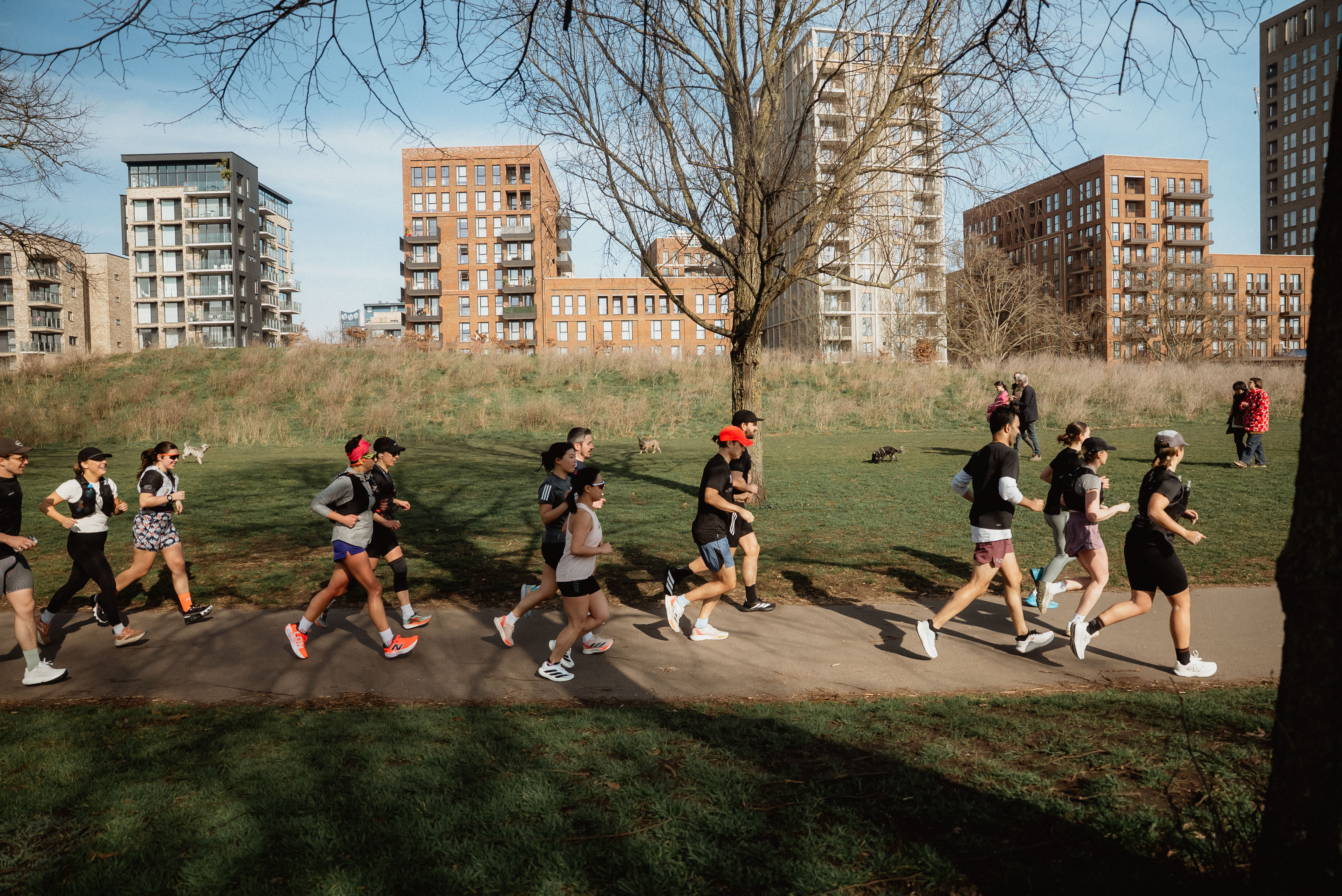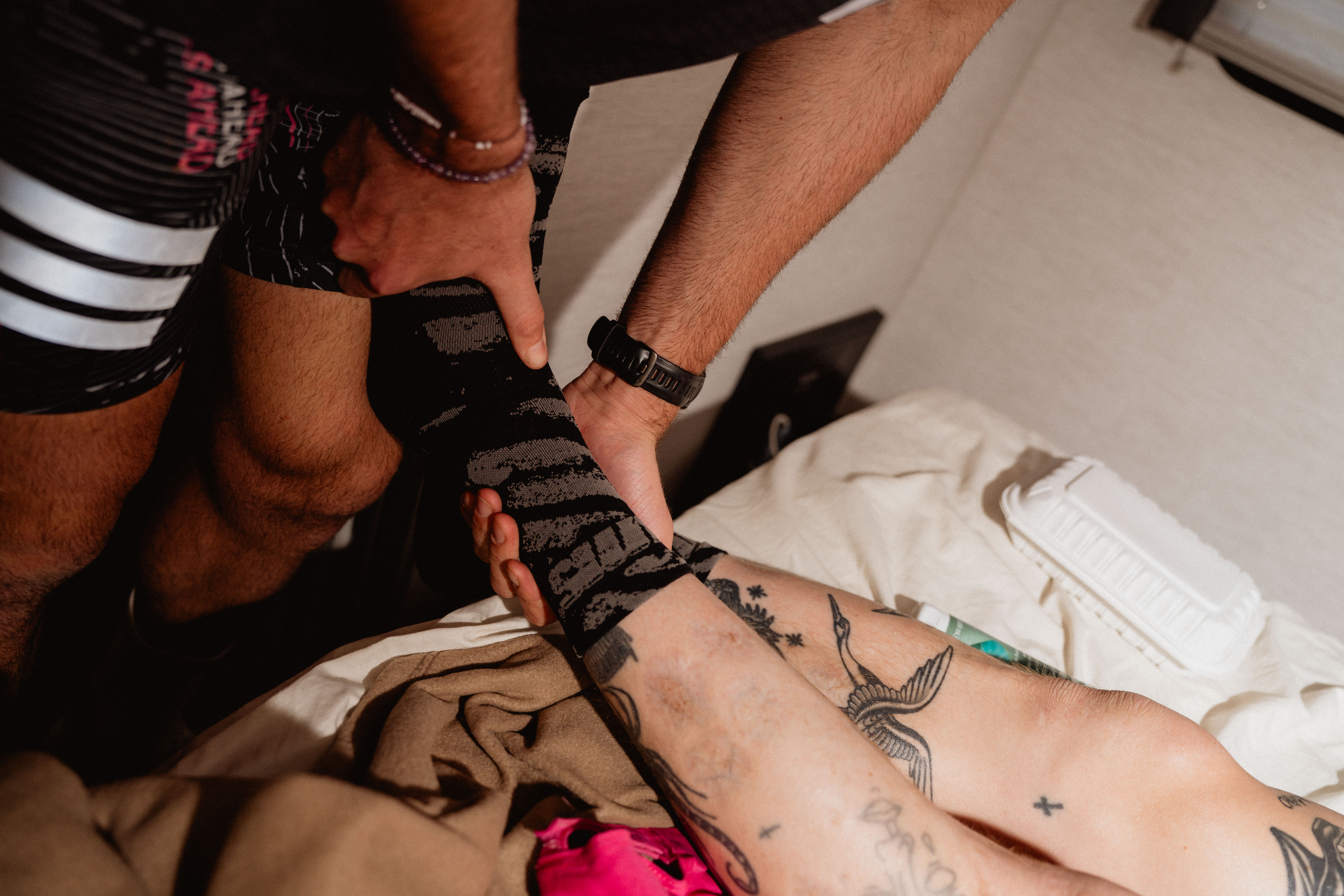Spring marathon season bathes in a uniquely atmospheric glow; training takes place through the chill of winter, during dark mornings and darker nights which gradually ease into the beauty of (sometimes) sunny spring. Race day rolls around as cities come alive with marathon fever, and the unofficial runners-start of the summer.
It can be tempting to finish a race and immediately jump back into running: after all, the weather is kind, the fitness is carrying over from the marathon block, and there are more goals to chase.
But beware of the hidden challenges of the marathon and longer-distance races. After the race, when you think it's all over is the time when injuries, illnesses and ailments can crop up and linger when you least expect it.
Why? Surely all the hard work has been done and now is when your body should be freshening up and feeling good after a week or more of downtime, right? Not exactly.
Matt Bergin – chartered physiotherapist with a specialism in running and Irish international runner – suggests that this period is often particularly risky: "Overuse injuries will typically rear their heads several weeks after the training overload has happened, so someone might feel fine five-days after a marathon and get back into things but four to five weeks later be paying the price for it with an Achilles that’s flared up". You're not just recovering from the race, but the entire training block, both of which build all kinds of inflammation and muscle damage in the body and is crucial to allow time to let all of this subside.

Instead, listening to your own body and how it feels day-to-day is an absolute must. Only you know how you truly feel, after all. Just like with running itself, everyone's individual ability to recover is different. Take your time and if in doubt hold back. "It's a reverse taper" Matt says, as a helpful analogy, "spend a good few weeks gradually building [running] load" to allow the body to readjust to things after a prolonged effort.
In the meantime "make the most of the post-marathon period to work on issues that were being managed pre-marathon with strength training, working with physio to guide you on specifics rather than bodging together with tape, for example". As much as anyone, we know how much the tendency to let 'the extras' (like strength, physio, sleep and recovery) slip during a down-period from running, but it can be one of the most important parts of a healthy return to running.
For the running portion, Matt also recommends keeping things easy, avoiding the intensity of speed, tempo and true long runs. "I've been seeing people rushing back into speed work more often, which I believe is a mistake... The key is not to force it just because you have had a week off". As with any build-up in training, don't combine an increase in volume with an increase in intensity and if in doubt, take things even easier than you think. It's best to take your time now and avoid a prolonged period of injury and/or illness that could set you back even further than an extra week or two of light training.

Finally, often overlooked is the mental toll that preparing for a key race has on wellbeing. Months of training focusing on a single day can be exhausting. Nerves build; anxieties about goals, injuries, fitness creep in; adrenaline, excitement flow on the start-line; an outpouring of emotion at the finish. Let the mind recover, too. "Give yourself as long as you want and need", Matt emphasises, warning of the dangers of social-media trends showing many people claiming to have little-to-no time off post-marathon.
---
Matt Bergin is a Chartered Physiotherapist with Witty, Pask and Buckingham, you can find him on Instagram @Matt_bergs




